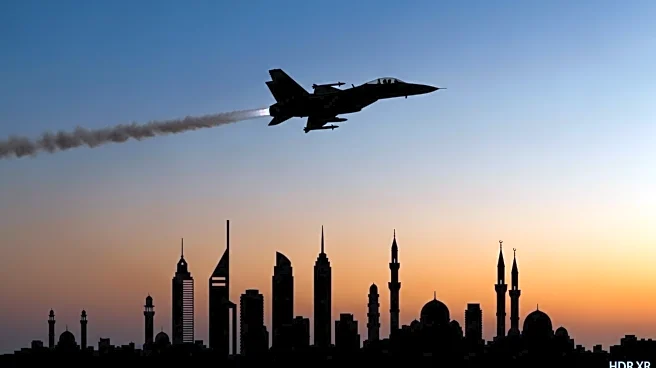What is the story about?
What's Happening?
Israeli airstrikes on Yemen's capital, Sanaa, resulted in the death of Iran-backed Houthi Prime Minister Ahmed al-Rahawi. The strikes targeted senior military officials, including the group's defense minister, Mohamed al-Atifi, and Chief of Staff Muhammad Abd Al-Karim al-Ghamari. The airstrikes were part of a broader response to Houthi missile and drone attacks on Israel and shipping in the Red Sea. The Houthis, controlling much of Yemen's northwestern region, have been actively targeting Israel throughout the ongoing Israel-Hamas conflict. The Trump administration had previously brokered a deal with the Houthis to cease attacks on shipping, but the group continued targeting entities aligned with Israel.
Why It's Important?
The death of Ahmed al-Rahawi marks a significant escalation in the conflict between Israel and the Iran-backed Houthis. This development underscores the ongoing regional instability and the complex geopolitical dynamics involving Iran's influence in Yemen. The strikes highlight Israel's determination to counter threats from Iranian proxies, which could further strain relations in the Middle East. The U.S.-led coalition's involvement indicates broader international stakes, potentially affecting global navigation and trade routes through the Red Sea.
What's Next?
Israel is assessing the impact of the strikes on Houthi leadership and may continue military operations to neutralize threats. The Houthis' response and potential retaliation could further escalate tensions. The international community, including the U.S., may need to engage in diplomatic efforts to prevent further destabilization in the region. Monitoring the situation will be crucial for stakeholders involved in Middle Eastern politics and global trade.

















